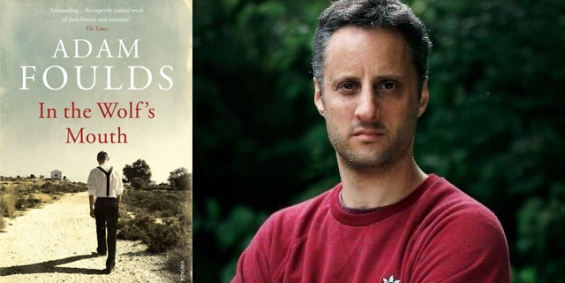Author spotlight: Adam Foulds
13th May, 2015
Continuing our series of Q&As with shortlisted authors
Adam Foulds, author of In the Wolf’s Mouth
What do you think about being shortlisted for the Walter Scott Prize for Historical Fiction? Do you see yourself as a historical novelist?
I’m delighted to have been again shortlisted for the Walter Scott Prize, and in such exalted company. I wouldn’t say I see myself as a historical novelist particularly. I write things set in the contemporary world as well as the more distant past and in both cases the effort is to capture the reality of those moments, to create an experience of the present for the reader. For me, it’s important to treat historical subjects as though they were the present so as to most fully inhabit the character’s experiences, characters who are living those moments in their lives forwards, as we do.
The Judges were struck by your brilliant evocations of place. Did you spend much time in the area you write about?
I had a couple of trips there. On the second, I was lucky enough to stay with a family, landowners in that part of Sicily. The older generation could still remember a time when they could only visit the estates under armed guard because of the threat of being kidnapped for ransom. (I also met some historians from Palermo University who gave me a lot of information, and some people who lived through the war in Sicily). That landscape is very distinctive. It made a lasting impression.
How do the people and times you write about first lodge in your imagination?
This is not an easy question to answer. I find myself among them, wanting to write my way around and through them. In this case, it was that first visit which was for a holiday to western Sicily, the landscape, the eerie and obvious presence of the Mafia.
At which point do you let fiction take over from research?
As soon as I can. I research to immerse myself, to feel secure in the world, to feel its textures and particularities, and to know that I am not going to perpetrate any anachronisms. After that, I want to get into the free and unconfined process of writing as soon as possible.

